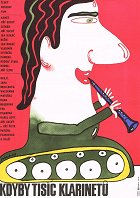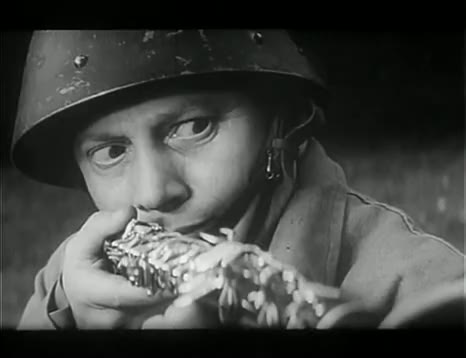Kamera:
Rudolf Stahl ml.Besetzung:
Waldemar Matuška, Jana Brechova, Hana Hegerová, Eva Pilarová, Karel Gott, Jiří Šlitr, Jiří Suchý, Jiří Jelínek, Jana Malknechtová, Pavlína Filipovská (mehr)Inhalte(1)
This anti-war musical presents all the popular personalities of Czech pop-music of that time on a single screen. A statue of Johannes Sebastian Bach is revealed in a fictional spa town named Alkalis. At that time, a pacifist soldier, Schulze, deserts the local garrison, and the weapons miraculously turn into musical instruments in the guarded military area. TV reporter Tereza (Jana Brejchova) appears at the curious event with the instructions to prepare a spectacular TV revue in the barracks. The militant officers try in vain to disrupt the event. Jiří Suchý and Jiří Šlitr play a duo of paratroopers who spend a night behind the window of the ladies' chamber. (Febiofest)
(mehr)Kritiken (4)
A long sequence of music-hall numbers whose integration into the narrative is even more atrocious than is usually the case in musicals. Songs by the biggest Czechoslovak pop stars of the 1960s, spliced together without any discernible logic and drowning out not only the trivial plot, but also both of the slogans that comprise the film’s foundation: “Who’s Czech is a musician” and “Make Music, Not War”. Today, If a Thousand Clarinets doesn’t stand up either as a musical or as a satirical fairy tale. At best, it is a film strip preserving a cabaret attended by an unusually large number of familiar faces. 55%
()
The film adaptation of the musical "If a Thousand Clarinets" is a strange monument to a phase of Czech musical theater. The film only became a phenomenon when it was re-released during the normalization period. So where’s the problem? The naive incorporation of would-be independent television (the same medium was already dealt with in films before the war and even then in a much more innovative way), especially the parody scenes with Šmída and the entire Ministry of War are as if from other 1960s films (The White Lady, The End of Agent W4C or The Incredibly Sad Princess). While on the stage Zuzana was played by the mature Ljuba Hermanová, in the film the same role is to entrusted to the sexy Brejchová, which isn’t great. What remains is an alcove of popular actors that functions as a random jukebox and takes the feature film format back at least three or four decades.
()
Besser als Hopfenpflücker und ein bisschen schwächer als Eine Nacht auf Karlstein. Ein Film mit der tschechoslowakischen Sänger- und Schauspielelite. Am meisten haben mir seine Antikriegsbotschaft (was für Suchý und Šlitr typisch war), die zeitlosen Lieder und die schöne Stimmung gefallen. Es ist mir eigentlich egal, dass er fast kein Drehbuch hat.
()
If the ending didn't sound somehow empty and I didn't have the feeling that it's cut off in the middle, I would give this movie 100%. Like this, only 90%, but this is one of those movies that simply captivate me when I watch them, especially with their musical aspect. It's simply stunning and I am enthusiastic.
()

